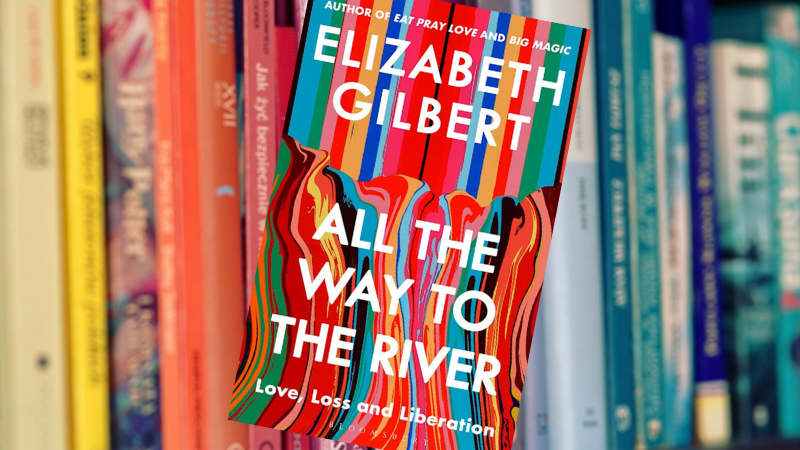All The Way To The River
by Elizabeth Gilbert
Bloomsbury
After turning thirty, Elizabeth Gilbert experienced an early mid-life crisis. Despite having a good education and a successful career as a journalist, along with a husband and a house, she left her job, divorced her husband and got rid of all her belongings to travel the world on a journey of self-discovery.
This year-long journey to Italy, India and Bali was the basis for her best-selling autobiographical book – Eat, Pray, Love which was published in 2006. It was so successful that it was made into a film starring Julia Roberts, and inspired travel packages around the world.
Although Gilbert has published four other books in the interim, All The Way To The River is really a follow-up memoir to Eat, Pray, Love where she takes a journey of self-healing. Subtitled Love, Loss and Liberation, the journey she takes the reader on is into addictions and the work required to earn redemption.
In Eat, Pray, Love, Gilbert managed to find inner contentment. Unfortunately, without a support network when she returned to Australia, she returned to her old ways and drove her life off a cliff again.

Although Eat, Pray, Love chronicles her relationships with men, this latest memoir sees her in a same-sex relationship with her best friend Rayya Elias. She states “I do not merely love Rayya; I am in love with Rayya”, even though she is married to her second husband at the time.
Rayya was Gilbert’s hairdresser, but she was also an alcoholic and a heroin addict, supposedly in recovery. When Rayya was diagnosed with liver and pancreatic cancer, the romantic obsessive Gilbert ended her second marriage and confessed her love to Rayya, rented a penthouse and went on a riotous and chaotic co-dependent journey.
It was only after hitting rock bottom that Gilbert was forced to recognise that her multiple addictions, and Rayya’s multiple addictions, were being fed and no healing was happening. She realised that “feeling good and feeling well” are two different things and began her journey of recovery by herself again!
Written five years after gaining sobriety, the memoir is a hugely bumpy “high-octane” ride that leaves in its wake the negative impact addictions can have and the paths that, hopefully, lead to genuine contentment.
Lezly Herbert





